Home » Posts tagged 'Hradec Králové'
Tag Archives: Hradec Králové
History of Classics Discussed at UHK
An essential part of the Oral History and the Classics project was a conference held in the Faculty of Philosophy, University of Hradec Králové. This academic meeting which took place on June 1st-2nd and was titled Classics: the Past, the Present, and the Future. It gathered specialists reflecting on various issues related to the development of classical studies including history of ancient philosophy.
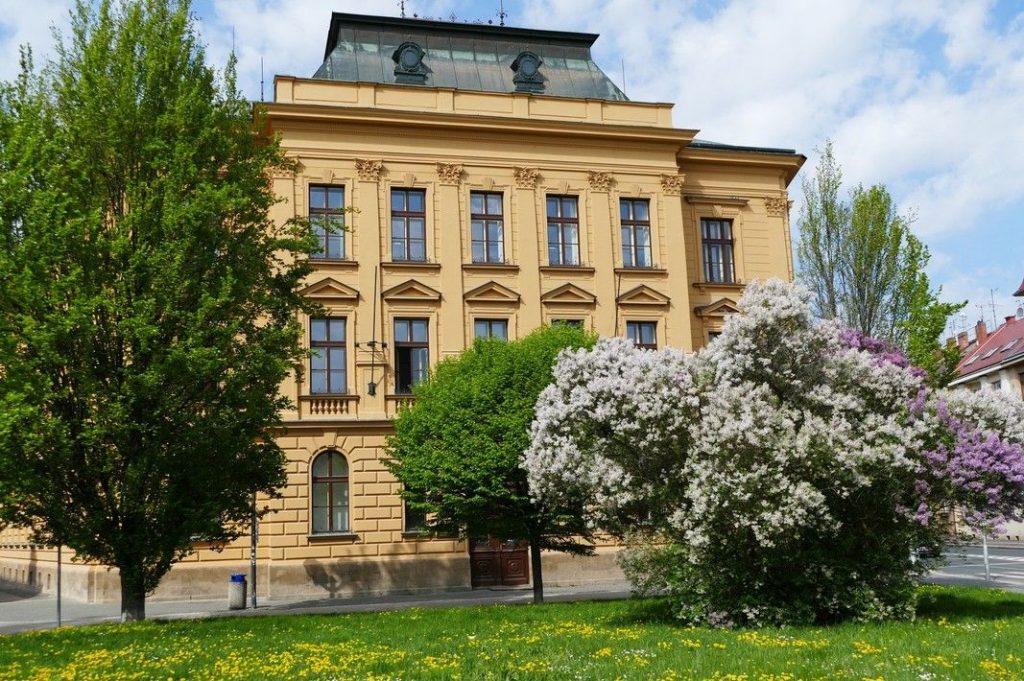
The head of the project and the conference was professor Jaroslav Daneš, with some help from Tomasz Mróz (University of Zielona Góra), a researcher in the project. Participants of the conference focused on historical developments of the classics, including their own experiences, “personal paths”, on recent problems, e.g. with teaching classics, and on the perspectives of future research in this area of studies.
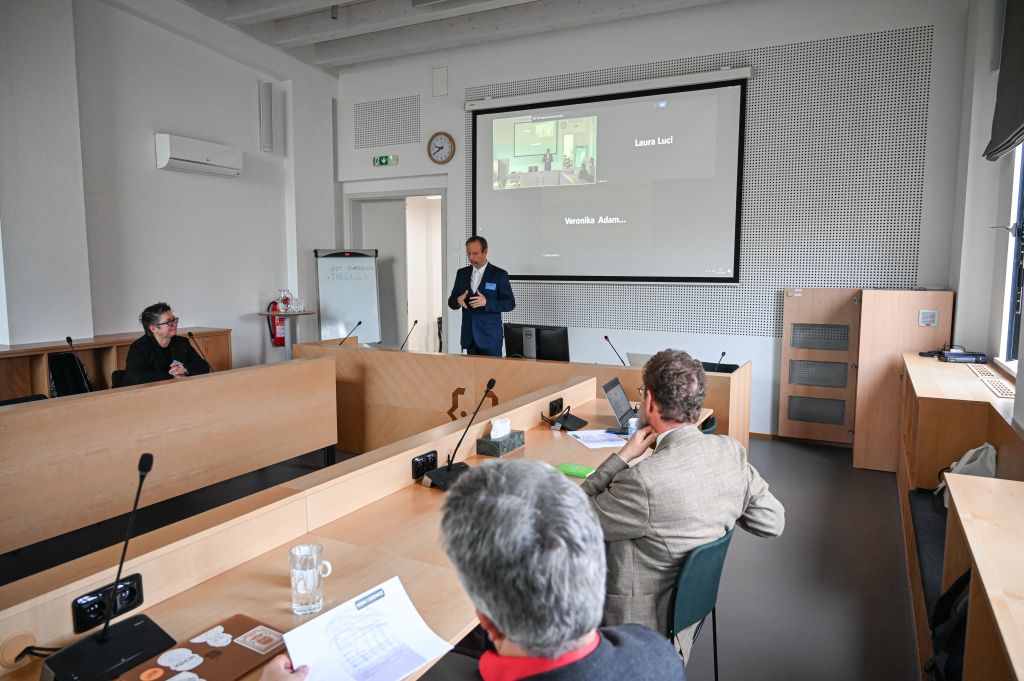
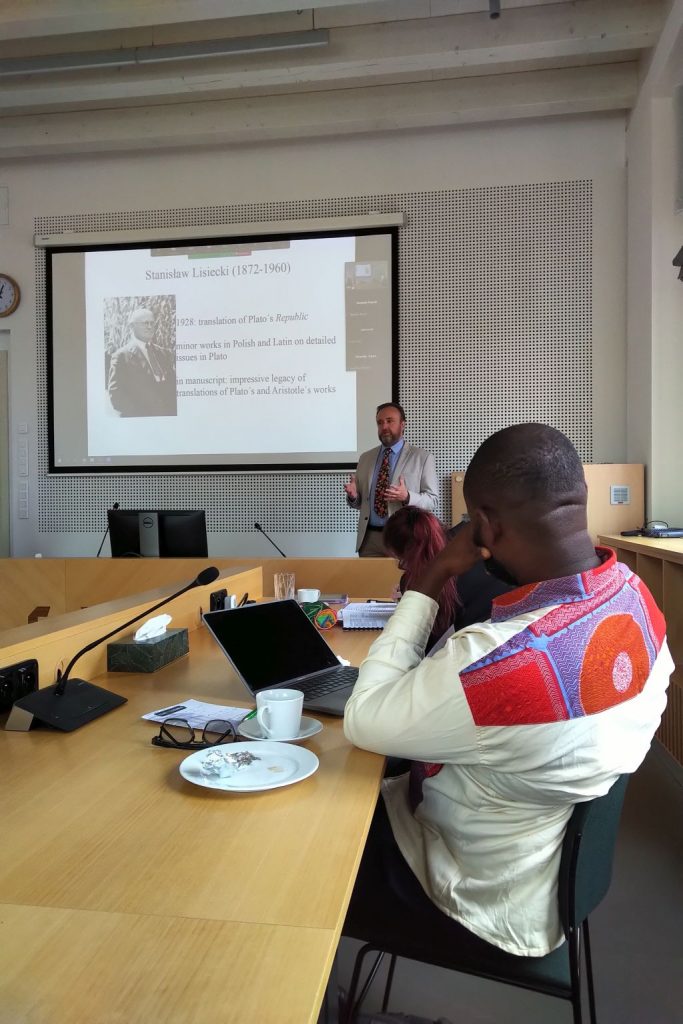
Platonic Inspirations was the title of the session during which an AΦR member,T. Mróz, delivered his paper: Plato in post-war Poland. Continuities and novelty. His talk was devoted to three Polish Plato scholars, who survived the World War II and attempted to include their experience of war and the post-war political situation of Poland into their studies on ancient philosophy. They were, starting with the oldest: Wincenty Lutosławski (1863-1954), Stanisław Lisiecki (1872-1960), Władysław Witwicki (1878-1948). It is sufficient to mention that it was the Marxist interpretation of Plato that was pushed in Poland after the war by Polish Marxist philosophers (e.g. by T. Kroński) and in general works on philosophy translated from Russian. In these circumstances Lutosławski planned to published a volume on Plato presenting him as an intellectual and moral remedy for Europe, Witwicki, quite the opposite, blamed the philosopher for inventing totalitarianism, and Lisiecki turned from Plato to Aristotle, who was more acceptable then as a naturalist and a critic of Plato.
Consultation Visit in FF UHK

As we have already announced here, AΦR actively cooperates in pursuing a research project funded by the Faculty of Philosophy University of Hradec Králové (FF UHK) and it is necessary to discuss issues appearing in the initial phase of our cooperation. A meeting devoted to identifying and solving such problems took place on March 28th, 2023, in the Department of Philosophy and Social Sciences, UHK (photo of the Faculty main building on the right).
Jaroslav Daneš and Tomasz Mróz (both on the photo) agreed on the criteria of selecting scholars, Polish experts in ancient philosophy, who will be invited to share their unique, personal experiences of developing their decade long careers. It will be both interesting and instructive for young scholars and researchers to learn the objectives that previous generations had to overcome, support they received etc. Moreover, preliminary schedule of interviews was arranged and various technicalities were discussed.
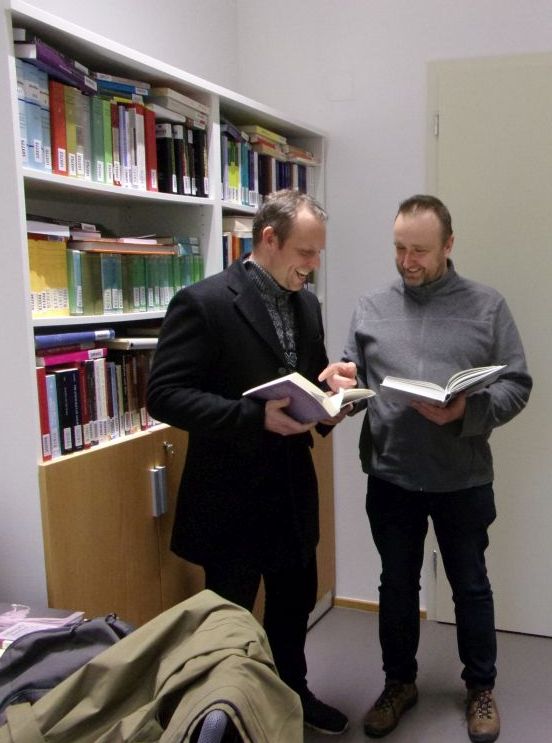
A Cooperation in a Research Project with the University of Hradec Králové
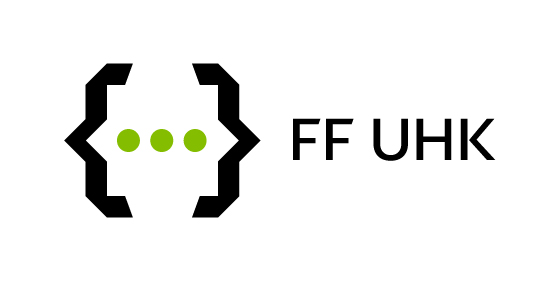
In January 2023 at the Faculty of Philosophy University of Hradec Králové (FF UHK) a new research project starts. It is one of the winners of the Internal Grant Competition of FF UHK for International Research Teams. The aim of this competition was to stimulate and develop international research collaboration of FF UHK scholars with partners abroad.
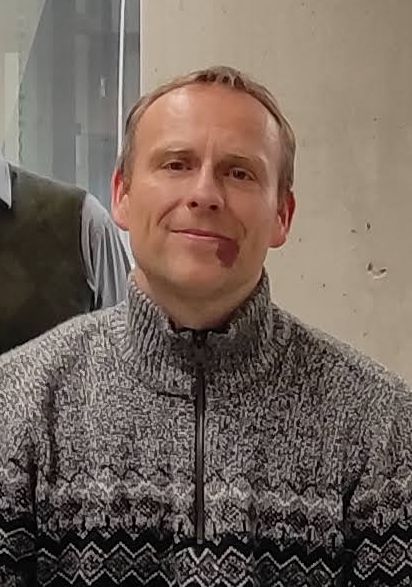
Principal investigator in the project is doc. Mgr. Jaroslav Daneš, Ph.D. who works as an associate professor in the Department of Philosophy and Social Sciences (FF UHK). His research interests include ancient Greek political theories, esp. theory of war in philosophy and tragedy, and related issues. Doc. Daneš has visited Institute of Philosophy, University of Zielona Góra, several times on various occasions (as Erasmus+ teacher, as a conference participant, and recently as a member of an academic committee of the International Workshop for Doctoral Students in Philosophy).
The title of doc. Daneš’ project is Oral History and Classics. In short, the project aims to record and collect individual histories of European classical scholars from various countries, including those who devoted their careers to researching ancient philosophy, and thus to uncover the history of this discipline in the experience of scholars. A database of interviews with distinguished scholars will be assembled and subsequently analysed to reveal the connections between personal histories and the history of the discipline, including historiography of ancient philosophy. A Polish collaborator of doc. Daneš in this project is Tomasz Mróz (UZ), whose share in project is estimated as 30%.
International Workshop for Doctoral Students with participation of AΦR
On Oct. 17th, 2022, International Workshop for Doctoral Students in Philosophy was held at the University of Zielona Góra (UZ). The meeting was organised by the Institute of Philosophy (UZ: Tomasz Mróz, Paweł Walczak) in cooperation with Faculty of Philosophy, University of Hradec Králové (UHK: Jaroslav Daneš, Michal Rigel), with a participation of the Doctoral School of Humanities and Social Sciences (UZ). Workshop took place in one of the seminar rooms in the University’s Library. The leaflet of the session’s schedule can be downloaded here. The workshop was held under the auspices of His Magnificence Rector (UZ), prof. dr hab. Wojciech Strzyżewski. The meeting was opened by the Deputy Rector for Science and International Cooperation (UZ), dr hab. inż. Marcin Mrugalski. Then the opening addresses were delivered by dr hab. Anna Wojciechowska (Head of the Doctoral School of Humanities and Social Sciences, UZ) and dr hab. Justyna Kroczak (Deputy Head of the Institute of Philosophy, UZ).
The schedule of the session was filled by the doctoral students’ papers, with a small representation of M.A. students, who presented central questions, hypotheses, and provisional structures of their dissertations. It was very interesting to learn the great variety of topics that attract attention of the young scholars nowadays, and to compare different methods and approaches applied in their research works. The topics included relations between ethics and various theories of evolution (Wai Fung Leung, UHK), comparison of Locke’s and Marx’ political theories (Vadzim Antsipau, UZ), study on Adorno’s negative dialectics (Hynek Kaplan, UHK), and an analysis of modern digital challenges for humanity (Doruk Kaynak, UHK).
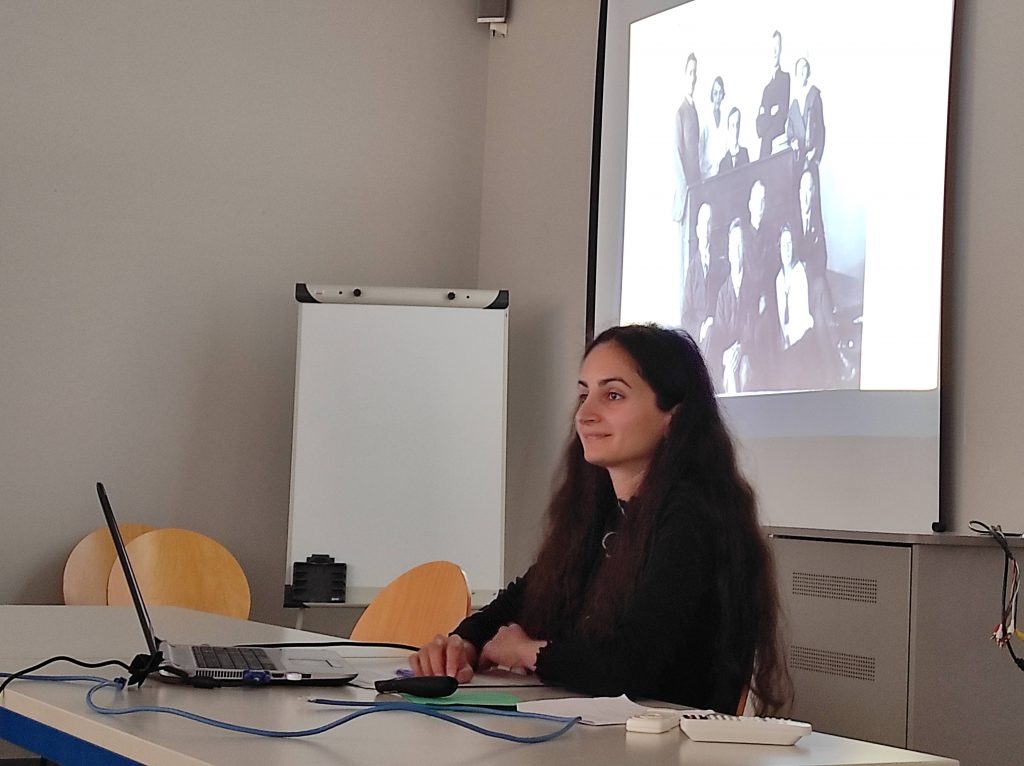
Two members of AΦR research group presented their papers, and at the same time sketched their dissertation plans. Mariam Sargsyan discussed her doctoral subject, that is, Henryk Jakubanis (1879–1949) as a Researcher of Ancient Philosophy and Its Reception. Her synthetic study will consist of a research of Jakubanis’ biography, works and his significance as a historian of philosophy. A display of some archival findings was an additional value of M. Sargsyan’s presentation.
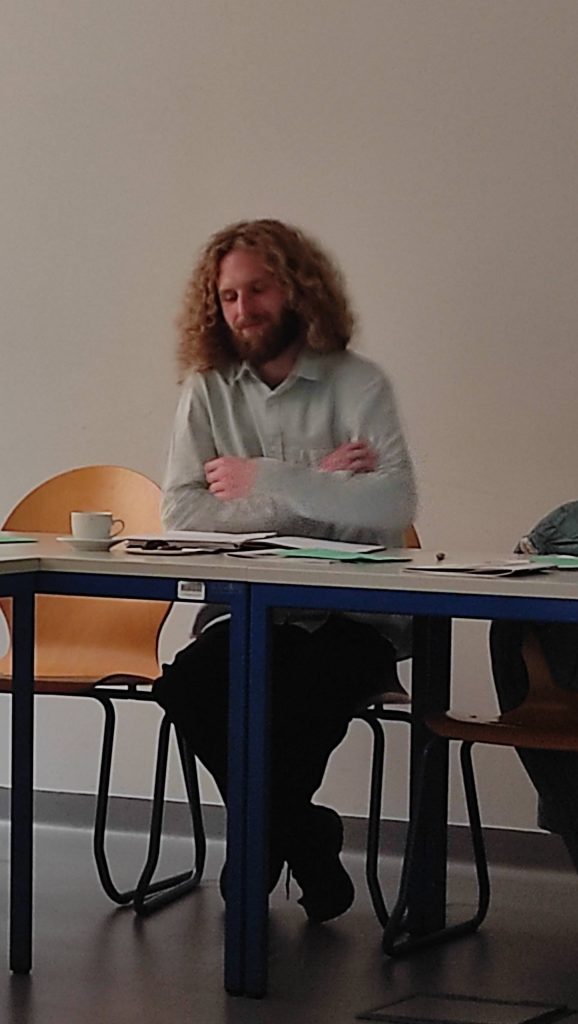
Adrian Habura’s paper was titled Aristotle as an inspiration and research subject of Władysław Tatarkiewicz (1886-1980). He presented his conclusions resulting from a detailed research in Tatarkiewicz’s writings. One of them was regarding Aristotle as the most important philosophical inspiration of Tatarkiewicz (or at least one of the most important). Habura pointed to a relations between Tatarkiewicz’s interpretation of Stagirite’s philosophy and his own philosophical investigations in the field of methodology, theory of cognition, axiology, ethics, and aesthetics. In all these fields of Habura discovered Aristotelian influences on Tatarkiewicz.
The audience consisted of the representatives of UHK & UZ, including the faculty and collaborators of the Institute of Philosophy (UZ), and Erasmus exchange students. It was a truly international meeting, in spite of the fact that the participants represented only two academic centres, for the origins of the speakers and members of the audience ranged from Czech and Polish to Chinese, Belarussian, Armenian, Turkish & Italian. At first glance, it seemed that the topics were extremely diverse, but at the end of the workshop and during informal meetings participants continued to discuss their topics. The workshop, thus, allowed the people of diverse backgrounds to meet each other and confront their ideas of doing philosophy, which is always inspiring and fruitful.
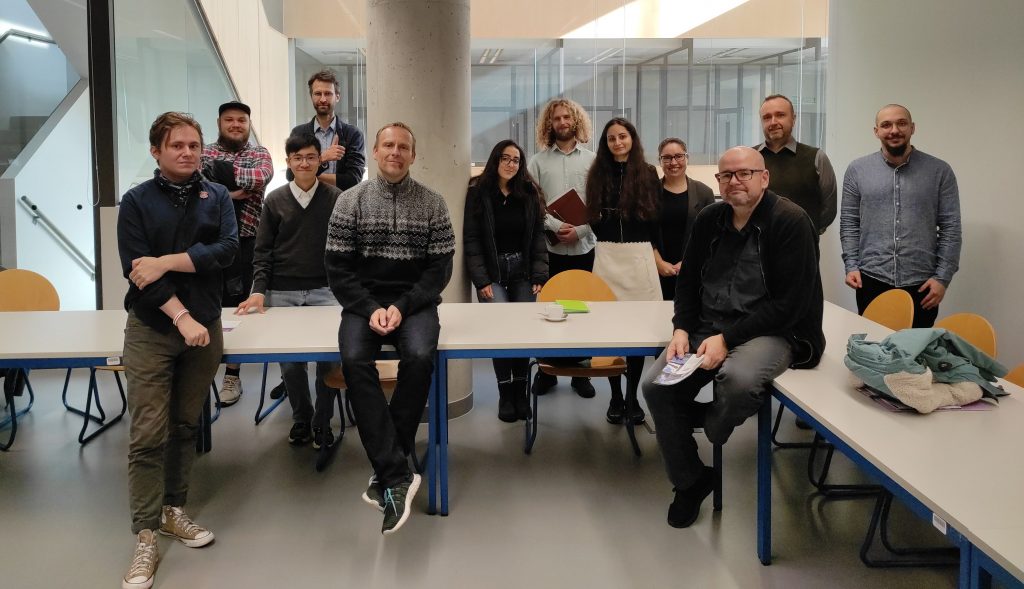
A more detailed presentation of the workshop in Polish, by A. Habura, has already been published in a monthly magazine of UZ (November [=Listopad] 2022) and available here, (pp. 38-39).
Recent commentaries